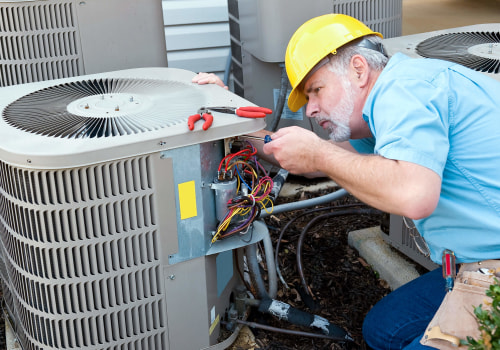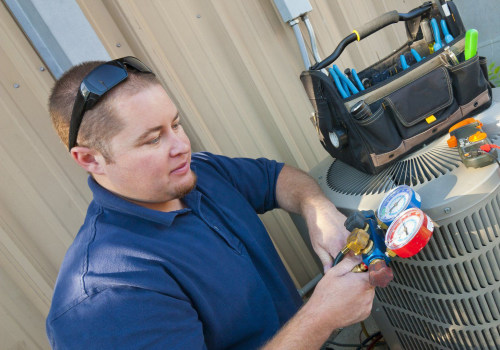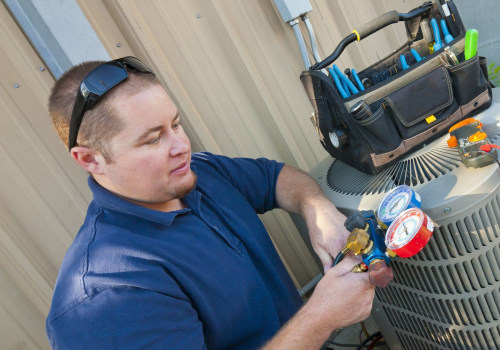12x24x1 HVAC Furnace Air Filters
When it comes to HVAC furnace air filters, the 12x24x1 size plays a crucial role in maintaining indoor air quality and optimizing the performance of your heating and cooling system. These filters are designed to trap dust, debris, and airborne particles, but the benefits extend beyond mere filtration. Understanding the nuances of filter materials, replacement schedules, and the impact on air quality can significantly impact your home environment. Stay tuned to discover how these seemingly simple components can make a substantial difference in your living space and overall HVAC system efficiency.
Importance of 12x24x1 Size
The 12x24x1 size for HVAC furnace air filters is crucial for ensuring efficient air filtration in residential and commercial settings. Filter size plays a significant role in the performance of HVAC systems, as it directly impacts the ability of the filter to capture and remove particles from the air. The 12x24x1 dimensions are popular due to their compatibility with a wide range of HVAC systems, allowing for easy installation and replacement.
Choosing the right filter size, such as 12x24x1, can have a substantial impact on the overall performance of the HVAC system. A filter that is too small may allow particles to bypass the filtration system, reducing indoor air quality and potentially causing damage to the system. On the other hand, a filter that is too large can restrict airflow, leading to decreased efficiency and increased energy consumption, ultimately resulting in higher utility bills. By selecting the appropriate 12x24x1 size, users can optimize filtration efficiency, improve air quality, and realize long-term cost savings.
Benefits of Using HVAC Filters
Utilizing HVAC filters not only enhances the quality of indoor air but also promotes energy efficiency within the home. By capturing dust, pollen, and other airborne particles, these filters help maintain a healthier living environment. Furthermore, a clean filter can contribute to the efficient operation of the HVAC system, potentially reducing energy consumption and costs.
Improved Air Quality
Enhancing indoor air quality is a primary advantage derived from utilizing HVAC filters in residential and commercial settings.
Reduction of Indoor Allergies: HVAC filters help reduce indoor allergens such as dust, pollen, and pet dander, making the air safer for allergy sufferers.
Health Benefits: Cleaner air due to HVAC filters leads to improved respiratory health and overall well-being for occupants.
Minimization of Airborne Pollutants: Filters trap pollutants like mold spores, bacteria, and volatile organic compounds, enhancing the air quality.
Decreased Dust Accumulation: By capturing dust particles, HVAC filters prevent dust buildup on surfaces, promoting a cleaner environment.
Enhanced Comfort: Cleaner air provided by HVAC filters creates a more comfortable and pleasant indoor atmosphere for inhabitants.
Energy Efficiency
Improved air quality isn't the only benefit of using HVAC filters; these filters also contribute significantly to energy efficiency in residential and commercial spaces. By trapping dust, dirt, and other particles, HVAC filters prevent debris from clogging the system, allowing it to operate more efficiently. This improved airflow reduces the energy needed to heat or cool a space, leading to energy savings for the user. Additionally, by maintaining clean filters, the system functions smoothly, reducing the need for repairs and lowering maintenance costs in the long run. The environmental impact is also noteworthy, as efficient HVAC systems with clean filters consume less energy, thereby reducing the carbon footprint associated with heating and cooling operations. Overall, using HVAC filters not only enhances air quality but also promotes energy efficiency and sustainability.
Comparing Filter Material Types
When evaluating different filter material types for HVAC systems, key points to consider include filter efficiency, longevity, and durability. Filter efficiency determines how effectively the filter can trap particles and contaminants from the air. Longevity refers to how long the filter can effectively function before needing replacement, while durability indicates how well the filter can withstand regular use without deteriorating.
Filter Efficiency
Filter efficiency varies significantly among different types of filter materials commonly used in HVAC furnace air filters. When selecting a filter material, consider factors like filter lifespan and maintenance to ensure optimal performance. Here are key points to compare filter material types:
Fiberglass Filters:
Typically have a lower upfront cost.
Need to be replaced more frequently due to lower efficiency.
Pleated Filters:
Offer better filtration efficiency.
Last longer than fiberglass filters but may cost more upfront.
HEPA Filters:
Provide the highest level of filtration.
Have a longer lifespan but are the most expensive option.
Remember to balance efficiency, lifespan, and maintenance requirements when choosing the right filter for your HVAC system.
Longevity & Durability
Among the various types of filter materials used in HVAC furnace air filters, longevity, and durability differ significantly, impacting the overall performance and maintenance requirements of the system. Filter maintenance and cleaning play a crucial role in extending the lifespan of the filter and ensuring optimal performance. Filters made of high-quality materials like HEPA (High-Efficiency Particulate Air) typically offer better longevity and performance compared to fiberglass filters. HEPA filters are known for their durability and ability to capture a high percentage of particles. While fiberglass filters are more affordable, they may need more frequent replacements due to their lower durability. Considering the trade-off between cost and longevity is essential when selecting the most suitable filter type for your HVAC system.
How Often to Replace Filters
Regular maintenance of your HVAC system includes replacing the filters under manufacturer recommendations. This simple task not only ensures the efficiency of your system but also contributes to cost savings in the long run. Here are some key points to consider regarding how often to replace your HVAC filters:
Follow manufacturer guidelines for the recommended frequency of filter replacement.
Consider factors such as the type of filter, household size, pets, and indoor air quality when determining the replacement schedule.
Keep track of the filter replacement dates to stay on top of this crucial maintenance task.
Check the filters regularly for dirt and debris accumulation, and replace them if they appear dirty before the scheduled replacement time.
Consider investing in high-quality filters for better filtration and longer use.
Tips for Improving Air Quality
To enhance the air quality within your home, implementing effective strategies can significantly benefit both your health and overall comfort. Indoor plants play a vital role in improving air quality by naturally purifying the air through processes like photosynthesis. Plants such as peace lilies, spider plants, and aloe vera are known for their air-purifying properties and can help reduce indoor air pollutants.
Additionally, using air purifiers can further enhance air quality by capturing and eliminating particles like dust, pollen, and pet dander. Regular maintenance of air purifiers is crucial to ensuring optimal performance. This includes cleaning or replacing filters as recommended by the manufacturer and keeping the purifier free from dust and debris. By incorporating indoor plants for natural purification and properly maintaining air purifiers, you can create a healthier indoor environment with improved air quality for you and your family.
Extending Furnace Lifespan
Improving air quality through methods like utilizing air purifiers can also contribute to extending the lifespan of your furnace by reducing the workload on the system. To further enhance the longevity of your furnace, consider the following:
Regular Maintenance Schedule: Adhering to a consistent maintenance schedule ensures that your furnace operates efficiently and reduces the risk of unexpected breakdowns.
Monitoring Filter Lifespan: Keep track of your filter's lifespan and replace it as recommended by the manufacturer to prevent clogging and maintain optimal airflow.
Cost Effectiveness: Investing in quality filters may seem costly initially, but in the long run, it can save you money by preventing costly repairs or premature furnace replacement.
Proper Filter Maintenance: Regularly cleaning or replacing filters not only improves air quality but also prolongs the life of your furnace by ensuring it operates smoothly.
Seek Professional Help: When in doubt, consult HVAC professionals to inspect your furnace, provide maintenance tips, and address any issues promptly.
Choosing the Right Filter Brand
Selecting the appropriate filter brand for your HVAC furnace system is crucial for ensuring optimal performance and air quality in your home. When choosing a filter brand, two key factors to consider are filter performance and brand reputation. The filter's performance directly impacts the air quality in your home by capturing dust, pollen, pet dander, and other airborne particles. Look for filter brands that have high-efficiency ratings and are designed to trap a wide range of contaminants to ensure cleaner indoor air.
Equally important is the brand's reputation. Opt for well-established filter brands known for their quality and reliability. Brands with a strong reputation are more likely to deliver on their promises of improved air quality and enhanced HVAC system performance. Additionally, reputable brands often provide better customer support and product warranties, giving you peace of mind knowing that you are investing in a reliable filter for your furnace.
Frequently Asked Questions
Can I Use a 12x24x1 Filter in a Furnace That Requires a Different Size?
When considering filter size compatibility for your furnace, it is crucial to adhere to manufacturer specifications. Using an incorrect size can compromise furnace performance and efficiency, leading to potential issues. Always consult with professionals for proper guidance.
Are There Any Health Benefits to Using a 12x24x1 HVAC Filter?
Improving air quality with a high-efficiency 12x24x1 HVAC filter can reduce allergens, benefiting those with sensitivities. These filters also promote energy savings by maintaining system efficiency and extending the furnace's longevity, making them a wise investment for health and cost-conscious individuals.
How Do I Know If My Current Filter Is Compatible With My HVAC System?
Filter compatibility and sizing are crucial for optimal HVAC system performance. To determine compatibility, consult the manufacturer's guidelines or an HVAC professional. Choosing the right filter ensures efficient air quality and system maintenance.
Can Using a Higher Quality Filter Improve the Efficiency of My Furnace?
Using a higher-quality filter can enhance furnace efficiency by improving air quality, leading to energy savings. It can also extend the filter's lifespan, reducing maintenance costs. Selecting the right filter compatible with your HVAC system is crucial.
Are There Any Environmental Benefits to Using a 12x24x1 Filter in My HVAC System?
Using a 12x24x1 filter in your HVAC system can provide environmental benefits. It enhances air quality, reducing allergens and pollutants. This leads to energy savings due to improved efficiency. Choosing sustainable options lowers your carbon footprint.
Here is the nearest branch location serving the Miami area. . .
Filterbuy HVAC Solutions - Miami FL
1300 S Miami Ave Unit 4806, Miami, FL 33130, United States
(305) 306-5027
https://maps.app.goo.gl/74FCk77QfRuNSGRd6
Here are driving directions to the nearest branch location serving Miami. . .




